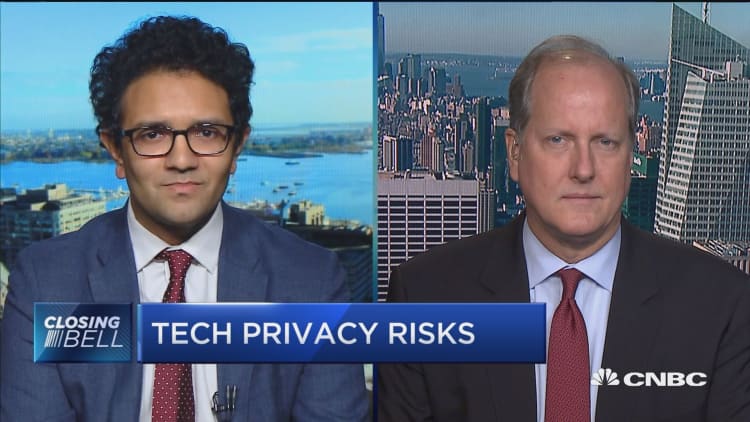
Google could run into problems with privacy policies if Congress is more receptive to consumer advocates than to the company's views on regulations, former Facebook privacy and public policy advisor Dipayan Ghosh told CNBC on Tuesday.
"If things do go in that direction, then I think the business model underlying Google, and companies like Google, will be under a more direct threat," he said on "Closing Bell."
The comments came after Google CEO Sundar Pichai appeared before a congressional committee, the first time Google parent Alphabet has sent an official to Capitol Hill for a hearing since skipping a Senate hearing on foreign interference in elections earlier this year.
Pichai testified before the House Judiciary Committee, whose members pressed him on a variety of concerns including data privacy, transparency and Google's development of a censored search engine in China.
Shares of Alphabet had a relatively uneventful day, falling 1.5 percent before climbing to close up nearly 1 percent at $1,061.65.
It's imperative for Google, Ghosh says, to engage and lobby policymakers and regulators in Washington, D.C., to set the tone for the broader tech industry.
"That is going to be in this industry's greatest interest because the U.S. policy environment still has the most influence on other policy environments around the whole world," he said.
When a tech player can get government officials "on the same page as the industry, the better for the industry," Ghosh added.
David Garrity, who is chief market strategist for Laidlaw & Co. and appeared on the segment with Ghosh, argues it would "pay dividends down the road" if U.S. regulations mirror standards in Europe. The European Union's General Data Protection Regulation, which went into effect in May, gave consumers in its 28-nation bloc control of their personal data that companies collect.
Similar policies would also bode well for the U.S. to align with the EU and "counterweigh" China's internet interests.
The approach would "make it easier for technology companies . . . to only have two standards to deal with rather than a fragmentation of standards" in doing business in the American, European and Chinese markets, Garrity said.


